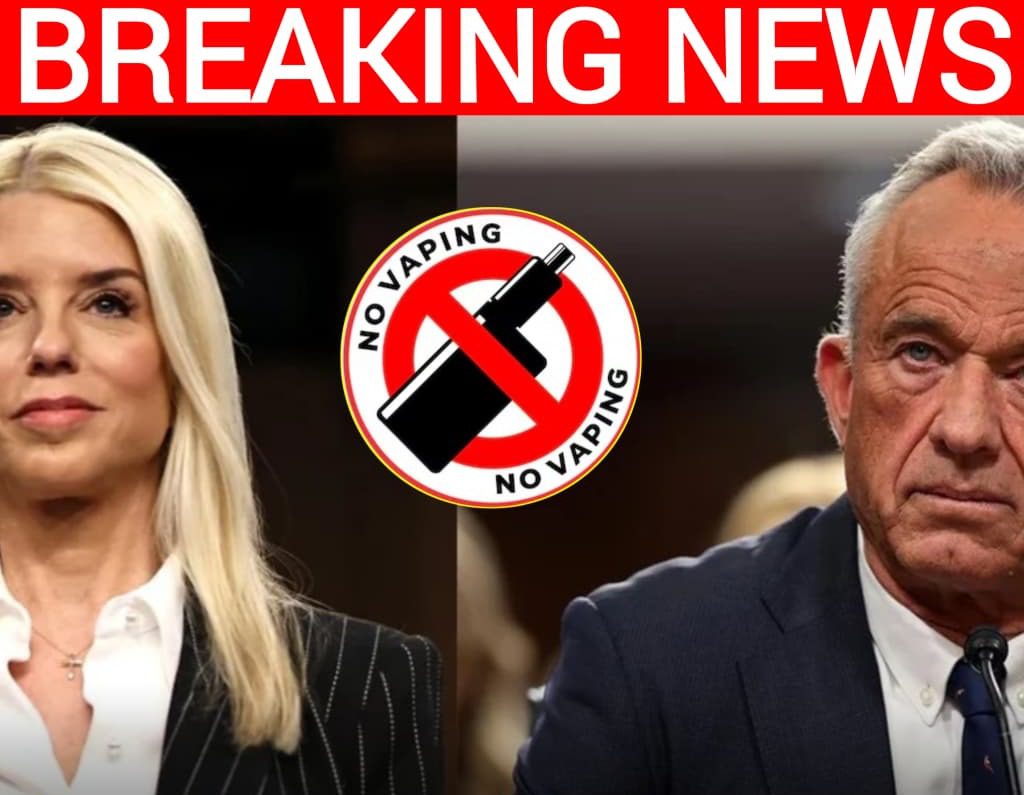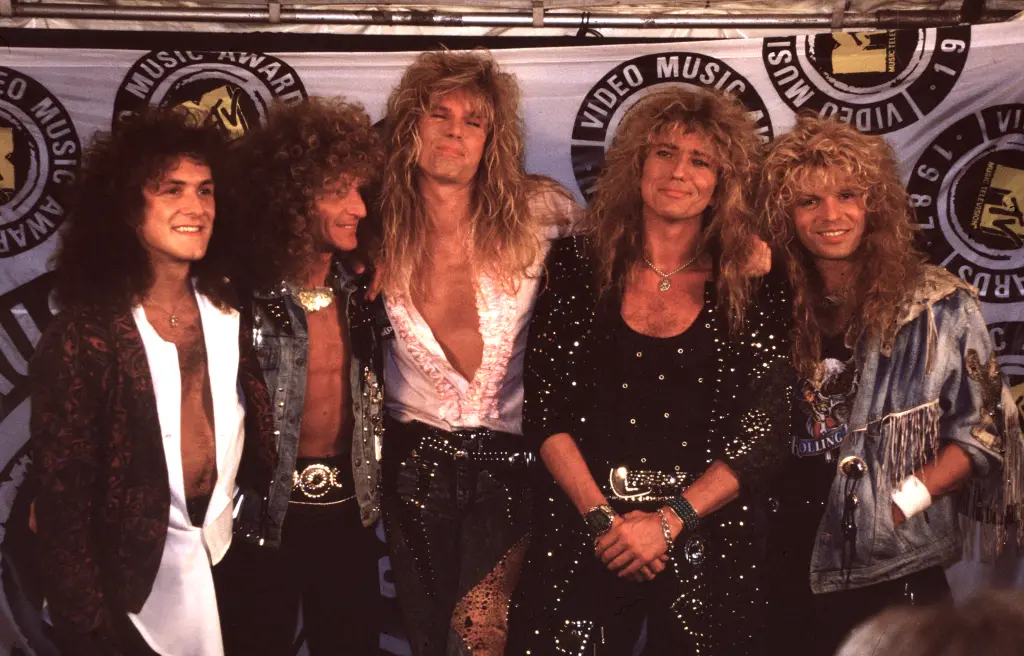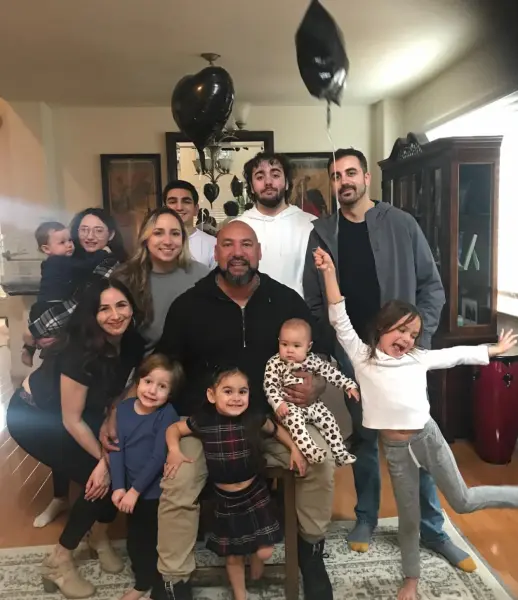RFK Jr. Leads Crackdown on Illegal Chinese Vaping Products With Pam Bondi, Seizing 4.7 Million Units Worth $86 Million
In a fiery press conference that blended health policy with international tension, U.S. Health and Human Services Secretary Robert F. Kennedy Jr. stood shoulder to shoulder with Attorney General Pam Bondi and announced a massive seizure of illegal vaping products from China. The bust, which took place in Chicago, involved more than 4.7 million units of unregulated e-cigarettes, carrying an estimated value of $86 million. Kennedy did not hold back in his remarks, declaring, “The Chinese are getting richer while our children get sicker. We’re putting an end to that.” His words set the tone for an operation that has drawn national attention not only for its size, but also for its broader implications.
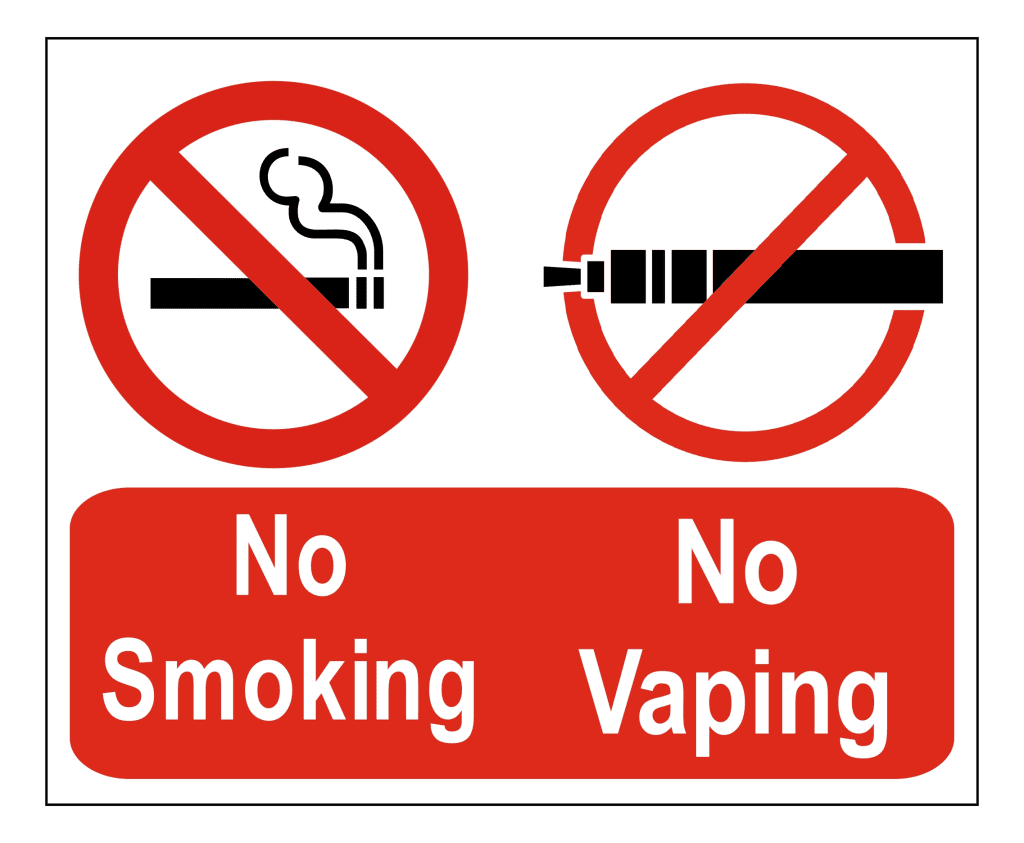
The rise of illegal vaping products has been one of the most persistent challenges in U.S. public health in recent years. Many of these products, smuggled through ports and warehouses, bypass regulatory checks and end up in the hands of young people. Unregulated e-cigarettes often contain higher levels of nicotine or harmful additives, raising serious health concerns. The FDA has been waging a battle against this shadow market for years, and Kennedy’s move represents one of the largest coordinated actions yet.
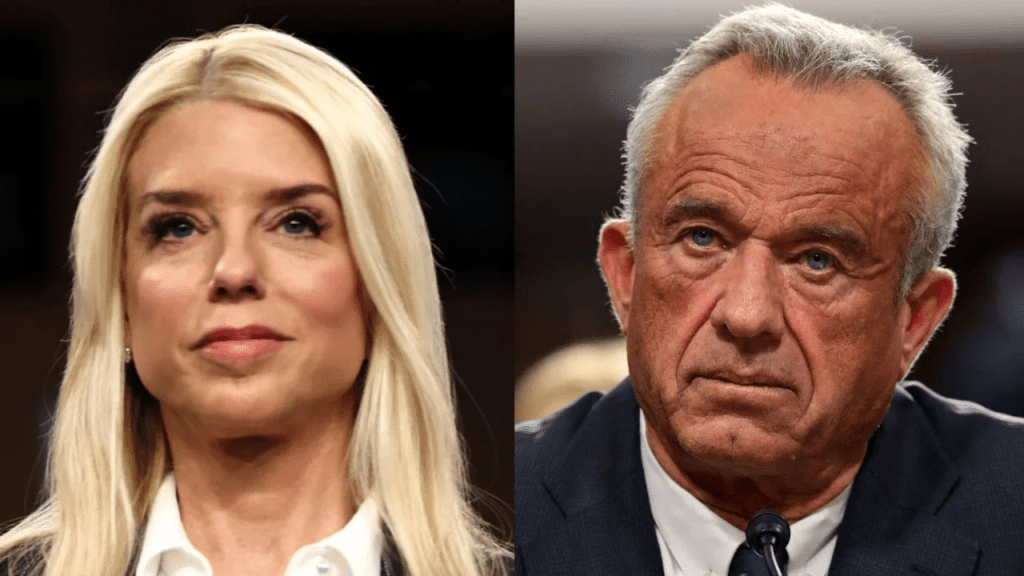
Pam Bondi, who has worked closely with federal agencies on consumer protection, emphasized the danger these products pose to teenagers. She highlighted that this seizure was not just about money or trade violations, but about preventing another generation from being exposed to products that can create long-term health problems. Bondi said the government’s message was clear: companies and distributors who try to flood the American market with unsafe, unauthorized products will face consequences.
This latest raid is not happening in isolation. Since 2023, the FDA and U.S. Customs and Border Protection have carried out multiple large-scale operations to stem the flow of counterfeit and unauthorized e-cigarettes. In October 2024, a bust valued at $76 million made headlines, and earlier this year in Chicago, $33.8 million worth of products were intercepted. Each seizure seems to confirm what health officials have been warning all along — the problem is persistent, sophisticated, and fueled largely by imports from China.
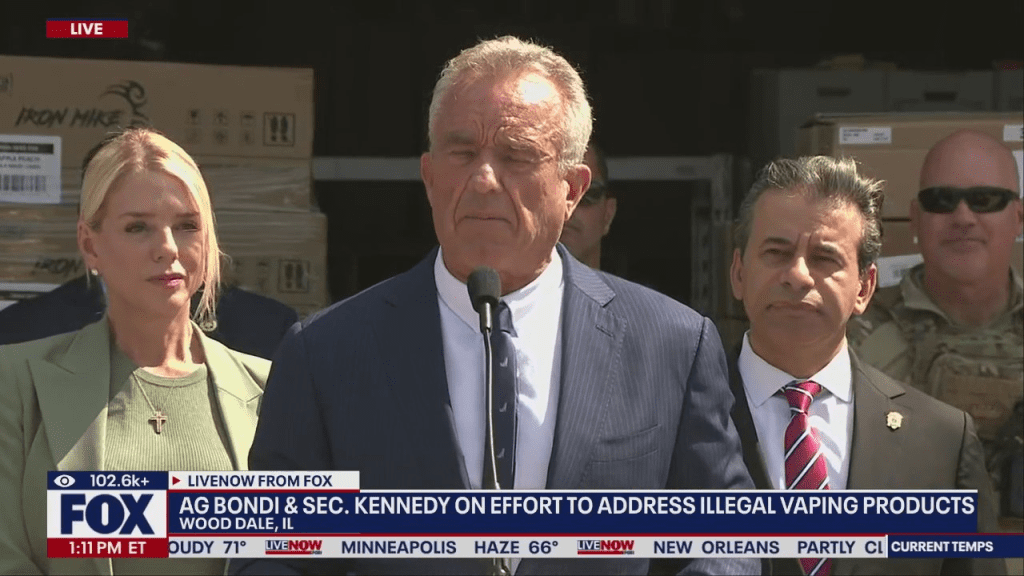
For Kennedy, who has not shied away from linking public health issues to broader geopolitical dynamics, this was another opportunity to underline his concerns about America’s relationship with China. He has previously described a Russian-Chinese alliance as a direct threat to U.S. security, and now his focus on illegal vaping imports ties those global concerns to the health of American children. By linking these seizures to foreign influence, he is signaling that the fight against unregulated vapes is as much about protecting the nation’s health as it is about protecting its sovereignty.
The decision to frame the crackdown in these terms is striking, and it could carry ripple effects in trade policy and international negotiations. If China continues to be identified as the primary source of these illegal products, pressure may mount for stricter import controls or even targeted sanctions against companies connected to the trade. For now, the priority is clear: stop the influx, protect children, and hold bad actors accountable.
The Chicago seizure is being celebrated as a major victory, but officials admit that more work lies ahead. Illegal networks adapt quickly, shifting routes and disguising products to evade detection. Still, the scale of this operation sends a strong message that the U.S. government is serious about enforcement. For parents, teachers, and health professionals who have been worried about the rise in youth vaping, the announcement brings some reassurance that the fight is being taken seriously at the highest levels of government.
Robert F. Kennedy Jr. and Pam Bondi’s joint appearance captured both the urgency and the determination behind this campaign. It was a reminder that public health battles are often fought on multiple fronts — in schools, in families, in labs, and sometimes even in warehouses and ports. What happened in Chicago may be one of the biggest seizures yet, but it is also part of a continuing struggle to keep dangerous products out of the hands of vulnerable young Americans.
